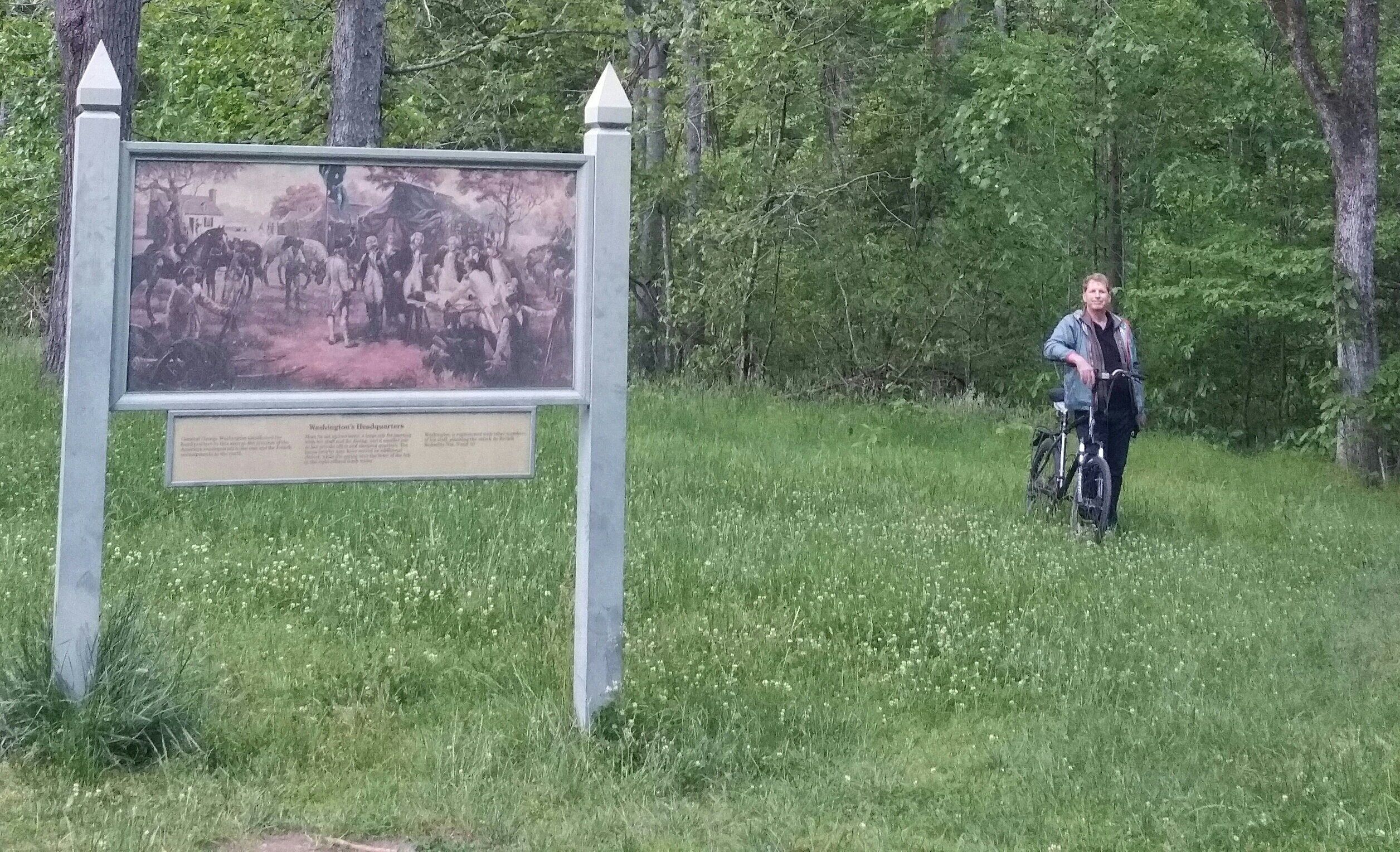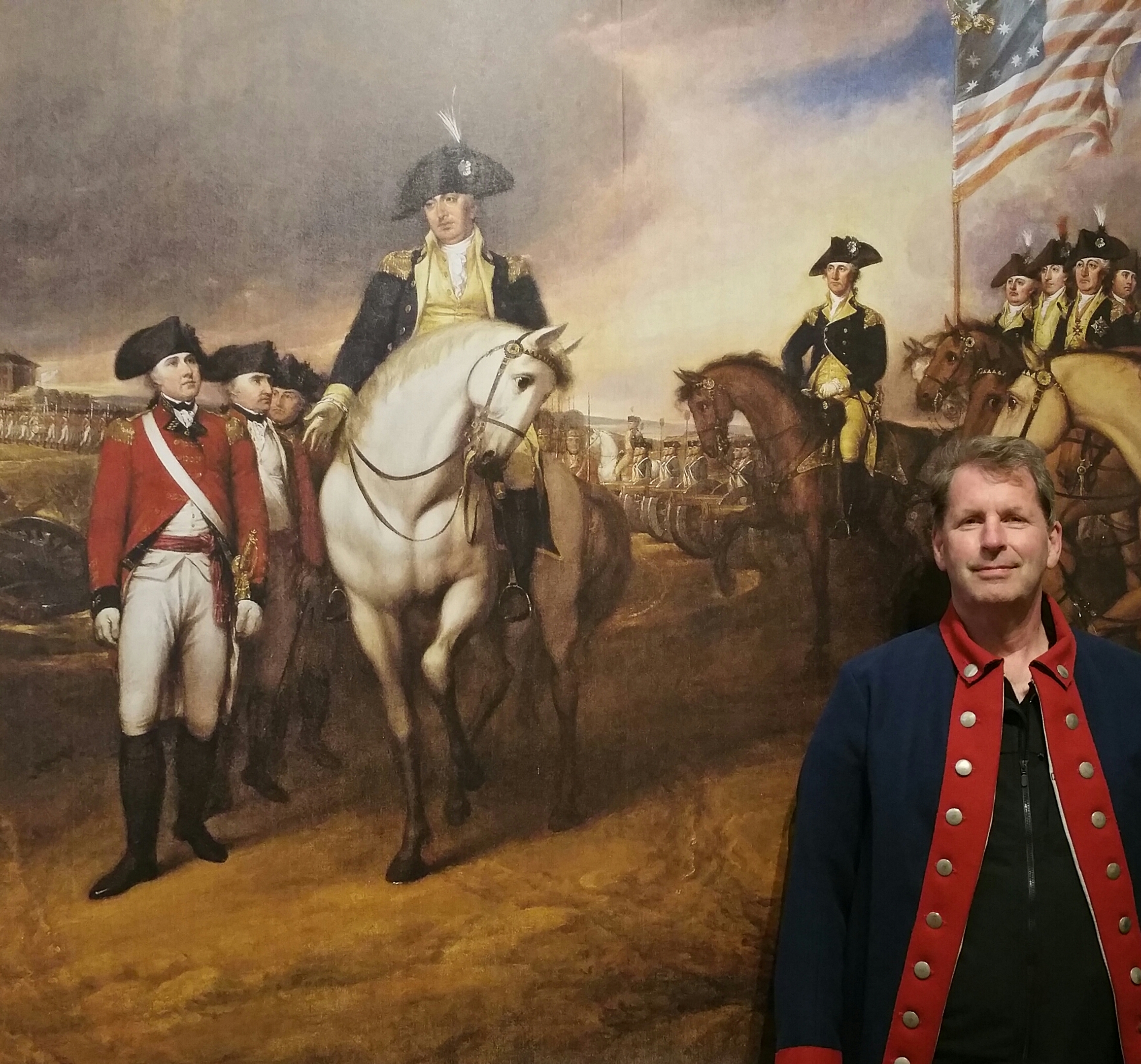
The wind is rushing past as we ride our bicycles on a dirt path through thick woods and emerge into an oval glade–a sign informs us that this is the spot General Washington had his field headquarters in the battle for Yorktown. On our way here we rode past Civil War embankments where soldiers from the North and the South lined up against one another. The birds sing, we feel perfectly safe to pass through these hotly contested parcels of land from another time and era. Today we toured very expensive museums displaying acts of war. One film has special effects when viewing a 90 degree screen–a sea battle is shown and a cool wind blows in the theater, bombs explode and “smoke” comes in through vents, the seats shake underneath and flashes of light display all around to make you feel you are in the midst of action. Of course we are perfectly safe from explosions, we are not really on rolling seas and the concussions of bombs do not threaten to demolish the building we are in, but they are stunning effects.
And what are we to think of these intense battlefields of the past, where courage and fear run hand in hand, where germs killed many more than bullets, yet metal projectiles did their terrible damage? Throughout my adult life I have striven to peacefully resolve conflicts, whether they are of the mind, in families, neighborhoods or in organizations–as a minister, counselor and mediator. It has been my purpose in this life to establish peace through reason, not violence. I even go to some lengths to coax a fly to leave indoors–after their initial wildness of finding themselves trapped a fly will often land on my arm as I escort him to outdoor freedom, or it will take my encouragement and fly out on its own.
And what of our admirable example of Mahatma Gandhi, his example of non-violent assertion of power? Was his not a more noble way to separate from England than America’s violent revolution? Paramhansa Yogananda felt there was a karmic connection between America and India; Columbus was searching for India when he bumped into the inconvenient North American continent. America of violent separation from England, India through non-violent means–a mirrored reflection? Does not India show the better way? Yet, though the Mahatma himself promoted non-violence through word and deed, yet the very real threat of his fasting, at least for the British, was that there would be massive violence on the streets if the Mahatma died from voluntary starvation. And then, as part of successfully quitting the British Empire there was the awful violence that occurred on the Pakistan/India border. This was something that, of course, deeply disturbed Mahatma Gandhi, but was not unanticipated. The point is: even with peaceful means of separation, many many more died in India of violence in their separation from England than in America’s war of independence–it is so difficult to be a purist in these things. It is also interesting that Mahatma Gandhi’s favorite scripture was the Bhagavad Gita, an exposition that takes place on a battlefield in which God, in the form of Krishna, is urging Arjuna to take up arms and fight!
Each of us are called to obey his or her conscience of what to do and how to do it. A hero or a villain is not defined by whether one picks up a gun or stands aside, but whether the individual adheres to the highest light he or she knows. Mother once asked me in front of a group, if the only way to stop someone from blowing up a hundred people would be to kill him, would I do it? In the end I said I would kill the one perpetrator to save a hundred innocents. It is a thought experiment, but it does make you face a most difficult decision, and helps bring out a principle. Papa, Master and Mother were all non-violent advocates, yet none were in complete agreement with Mahatma Gandhi’s absolutist view–there are times and places where self-defense, or in defense of others, violence and war may be the right solution.
As I walk these battlefields I am sure there were those on both sides who performed right action to the best of their ability. However, I, and many many millions have been the great beneficiaries of the courage shown by those colonists who believed in the ideals of freedom, desired to have a representative government and a guarantee of individual rights. I honor those who lived up to the highest light of their times, and take inspiration that I, and all of us, should be courageous in being examples of manifesting the great Light of God, within and without in whatever way He directs.
Picture: Just for fun! In Continental Army jacket
